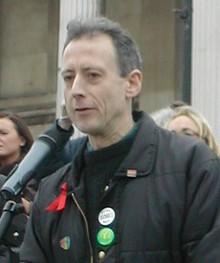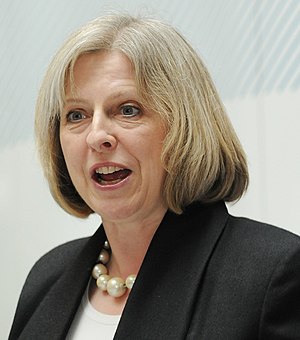By Paul Canning
In an extremely last minute decision, Barrister Abdulrahman Jafar has managed to pursued an Appeal Court judge to grant an injunction stopping tonight's removal of Ugandan lesbian Brenda Namigadde on Flight VS671 at 9.20pm to Nairobi.
What is clear at this point is that the Home Secretary, Theresa May, had decided not to use her powers to prevent the removal.
All day and evening activists have been hoping for any sign that the government, particularly in the light of the
murder of the Ugandan activist David Kato, would reconsider Namigadde's case. In the hours up to her flight, hopes were raised
when The Guardian reported that the Shadow Home Secretary Yvette Cooper has put out a statement saying that she had been told that the 'case would be reconsidered'. Her lawyer last Monday filed a new claim for asylum, based in part on the deteriorating conditions for LGBT in Uganda. Did this mean that the new claim had been accepted?
The support for Brenda could not have been greater. At time of writing over 50,000 people have
signed a petition from 160 countries. Theresa May's office had apparently been "deluged". Those using London's transport system today would have seen the free newspaper 'Metro' which splashed with Brenda's story
on its cover. As the Guardian wrote, MPs have been making representations to May as have Euro MPs. Numerous media outlets have covered her story and shortly the BBC's flagship news shows 'Newsnight' will cover it.
I have been working on this case with the indefatigable Melanie Nathan of
LezGetReal - who
secured the admission by 'Kill the gays' bill author David Bahati MP that Brenda must "repent" or be imprisoned if she returns to Uganda - and the great, new international LGBT defence organisation
allout.org since last Sunday, when we first became aware of it.
Says Nathan:
"I am so relieved for Brenda - that she is safe. During those many hours of uncertainty, while advocating behind the scenes, I kept thinking of what it must be like to be Brenda in each of those given moments. How it must have felt to not know. How it must have felt when David Kato was murdered, when she thought all was lost; that ride to the airport. I believe notwithstanding the fact that she is safe, she has endured cruelty at the hands of the UK asylum system. What she has gone through has been psychological torture.I hope this case will change how asylum is handled for all LGBT people around the world. In the USA and in the UK."
However despite all the signatures, all the media attention, in the end her legal position revolved entirely on the government contesting whether she is in fact lesbian - and if that failed, which it nearly did, her will to physically resist removal.
As I wrote earlier in response to the statement of Matthew Coats, head of immigration at the UK Border Agency, who said: "Ms Namigadde's case has been carefully considered by both the UK Border Agency and the courts on two separate occasions and she has been found not to have a right to remain here.An immigration judge found on the evidence before him that Ms Namigadde was not homosexual."
UK Lesbian and Gay Immigration Group has shown that
almost all of a sample of cases examined by them were initially thrown out, so Brenda's case could properly be said to have only been examined once. (There is no evidence to suggest that the rate of rejection has changed since the UKLGIG report was published a year ago. Anecdotal evidence is of an increase in challeges to whether claimants are gay or not.)
The one Tribunal hearing she had was missed by two witnesses who would have spoken to her sexuality - so on the basis of two people missing a hearing the risk would be taken to return her to a country where it is patently unsafe to be a lesbian? And there was other evidence presented by Brenda, including sworn statements.
At that point of rejection the odds were stacked against her. She was on the 'fast track' to removal.
The placing of sexuality-based asylum claims in the 'fast track' system has been
heavily criticized. Once disproportionately initially rejected at 'first blush' LGBT are more likely to be placed in 'fast track' where applicants and their lawyers had much less time to prepare an appeal, for, it is argued, often complex claims to be properly considered.
LGBT are far more likely to initially claim on other grounds - because they come from the 'global south' and are closeted (it has been suggested that Brenda's decision to 'come out' late weighed against her). They can come up against homophobic translators or even those judging their claim, as documented in
Stonewall's landmark report which includes interviews with Border Agents with little or no understand of the cultures they come from and hence the claimant's own regard of their sexuality. There are numerous reasons why these asylum claims are complex.
By coincidence this week the Conservative MP for Brighton, Kemptown,
Simon Kirby, asked the Immigration Minister, Damien Green MP,
in the House of Commons about whether he had given consideration "to the participation of (a) women and (b) lesbian, gay, bisexual and transgender persons in the detained fast-track procedure."
Green replied:
"Entry to the detained fast-track procedure is determined by reference to published policy available on the UK Border Agency website. The policy lays out categories of claimant who, for reasons of particular vulnerability such as late pregnancy, children or serious disability, are excluded from entry to the process. For all other claimants, the key factor determining entry to the process is whether a quick, fair and sustainable decision can be taken on the case."
"We do not intend to specifically add to an exclusion list all applicants on the basis of claimed or accepted gender, gender identity or sexuality. However, if on a case by case basis, any claimants from these groups are identified as having a claim of particular complexity, the general consideration referred to previously regarding amenability to a quick, fair and sustainable decision will apply."
Translation: we don't accept that these cases are complex. Green is here rejecting the evidence of the Stonewall report.
In another current Ugandan asylum case, still being appealed, gay man Garrick Nyeswa was told in his rejection letter that “there is no evidence to confirm that homosexuals are persecuted in Uganda.”
According to the Home Office's website, the latest 'country information' (known as COI and provided to Border Agents and used to make decisions) is from February 2009.
There has been consistent criticism of the quality of COI. As several
reports have found, COI reports on persecution in individual countries is partial, inaccurate and misleading as well as out of date. It often conflicts with the Foreign Office assessment of the risks to UK LGBT citizens visiting the same country as well as information in the Foreign Office Human Rights Report.
During the election, then Conservative leader and now Prime Minister,
David Cameron told me:
It's also important that the guidance the Home Office produces for asylum adjudicators to use in judging claims provides up-to-date and accurate information on homophobic persecution in every country.
The fresh claim for Brenda is partly on the basis of the new information of the deteriorating situation for lesbians and gays in Uganda, which appears to have been ignored in the assessment of her claim.
Yvette Cooper said in her comment today to the Guardian:
"The UK Border Agency's operational guidance for Uganda is now nearly two years old and does not mention LGBT rights. It needs to be updated as fast as possible to reflect the current situation on the ground."
The UK has previously decided to stop the return of failed asylums seekers: to Zimbabwe during the height of the violence there.
The government has been asked to recognise by Stonewall, UKLGIG and other NGOs that sexuality-based asylum cases are almost always complex, should be allowed more time and therefore not place them in 'fast-track': they have refused.
The Coalition government agreement says (page 18):
"We will stop the deportation of asylum seekers who have had to leave particular countries because their sexual orientation or gender identification puts them at proven risk of imprisonment, torture or execution."
The experience we have just been through with Brenda Namigadde demonstrates that they have broken this promise.
LGBT Asylum News has three separate and independent pieces of evidence that say that Brenda is a lesbian. We would not have embarked on this campaign if we believed she was not.
If we can demonstrate that in five days why cannot a system supposed to offer santuary to those who need it?
 Peter Tatchell image via Wikipedia
Peter Tatchell image via Wikipedia


























 Join our page
Join our page

